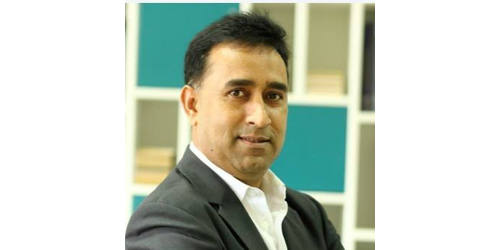
Mr. Suriyan Vichitlekarn
Executive Director, Mekong Institute
The Mekong Institute, an intergovernmental organization owned and managed by the governments of the Greater Mekong Subregion, is mandated to promote regional cooperation and development throughout the region. In pursuing this mission, MI works closely with the governments of six countries to foster integration through dialogue, knowledge exchange, and capacity development grounded in local ownership and shared responsibility. Guided by its Strategic Plan 2021–2025, MI supports inclusive, needs-based regional initiatives that address common challenges and contribute to long-term development outcomes. These priorities align well with the objectives of the Mekong–ROK Cooperation Fund (MKCF), particularly in advancing regional collaboration and narrowing development gaps. Over the years, MI’s partnership with the Republic of Korea has deepened, helping to strengthen Mekong–ROK cooperation by effectively coordinating the MKCF. As the Fund Coordinator, MI plays a facilitating role in translating shared priorities into collaborative regional actions. By engaging government agencies, academic institutions, civil society, and Korean partners, MI supports efforts that strengthen institutional capacities, address common challenges, and facilitate practical cooperation within the Mekong–ROK partnership. Looking ahead, MI remains committed to nurturing capable and committed human resources who work together for a more integrated, prosperous, and harmonious Mekong region.

Mr. Madhurjya Kumar Dutta,
MKCF Director, Mekong Institute
The Mekong–ROK Cooperation Fund (MKCF) aims to support development initiatives that are responsive to national needs while also generating positive impact at the regional level. Each project is aligned with one or more of the seven priority sectors outlined in the Mekong–ROK Plan of Action. As part of a more programmatic direction, MI is working to highlight how project outcomes contribute to specific sectors, and how progress within those sectors supports the overall goals of Mekong–ROK cooperation. This approach helps clarify the link between project-level results and long-term regional cooperation. By identifying how projects support progress in each sector, we can better design future activities that advance the shared goals of the Mekong–ROK partnership. To support this approach, we have introduced a results-based Monitoring and Evaluation (M&E) system to better assess project outcomes and their potential for replication and scale-up. This enables us not only to measure results more effectively, but also to identify practices that can be scaled and sustained to generate broader regional benefits. While this system provides a foundation for more structured tracking, we recognize that there is still room for improvement. Ongoing efforts are being made to enhance its functionality, data quality, and relevance to regional cooperation goals. We believe that initiatives with regional perspectives—those that offer scalable models or lessons adaptable across countries—can deliver more lasting and inclusive impact. Moving forward, MKCF remains committed to supporting practical, results-driven cooperation that contributes meaningfully to a more connected and resilient Mekong–ROK partnership.
The Han River Declaration, adopted at the meeting in 2011, established a comprehensive partnership between the Mekong countries and the Republic of Korea (ROK) aimed at promoting common prosperity, regional cooperation, and development. Within this context, priority was given to three key areas of cooperation: ASEAN connectivity, sustainable development, and development for the people. The ROK Government committed to increasing official development assistance (ODA) to the ASEAN member states, with a primary focus on the Mekong countries.


Following the launch of the Mekong-ROK partnership in 2011, the Mekong–ROK Cooperation Fund (MKCF) was established in 2013 to support development projects in five Mekong countries: Cambodia, Lao PDR, Myanmar, Viet Nam, and Thailand (CLMVT). Up until 2020, MKCF prioritized six sectors: (1) infrastructure, (2) information and communications technology, (3) green growth, (4) water resource development, (5) agriculture and rural development, and (6) human resource development.
Annual contributions to the Mekong countries are managed through the Mekong Institute (MI), in accordance with the Terms of Reference (ToR) adopted at the 3rd Mekong–ROK Foreign Ministers’ Meeting in July 2013 in Bandar Seri Begawan, Brunei Darussalam, and the 5th Mekong–ROK Foreign Ministers’ Meeting in August 2015 in Kuala Lumpur, Malaysia.
As outlined in the Mekong–ROK Action Plan 2021–2025, the priority sectors have been updated to the following: (1) Culture and Tourism, (2) Human Resources Development, (3) Agriculture and Rural Development, (4) Infrastructure, (5) Information and Communications Technology, (6) Environment, and (7) Non-traditional Security Challenges.

Mr. Madhurjya Kumar Dutta
MKCF Director
Mekong Institute
Tel: +66 (0) 43 202 411
Fax: +66 (0) 43 203 656
Email: dutta@mekonginstitute.org

Ms. Mi Jung Im
MKCF Coordinator (Technical)
Mekong Institute
Tel: +66 (0) 43 202 411
Email: mijung.im@mekonginstitute.org

Mr. Ashutosh Kumar Jha
MKCF Coordinator (Finance)
Mekong Institute
Tel: +66 (0) 43 202 411
Fax: +66 (0) 43 203 656
Email: ashutosh@mekonginstitute.org
Mr. Giwoong Son
Programme Officer
Mekong Institute
Tel: +66 (0) 43 202 411
Fax: +66 (0) 43 203 656
Email: giwoong@mekonginstitute.org